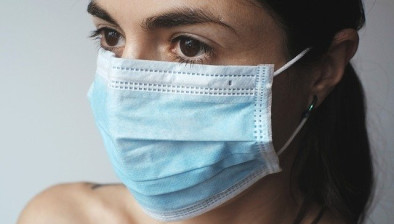NI High Court: Father fails in bid to prevent estranged wife from vaccinating their five children

Northern Ireland’s High Court has rejected a father’s bid to prevent his estranged wife from vaccinating their five children, having determined that the administration of vaccines for common illnesses, including Covid-19, is in the best interests of the child.
The court found that the father’s objections were not based on any credible scientific research or reliable data.
Background
The mother and father were married in May 2002 but became separated in 2015, prior to the birth of their youngest child. During the marriage, both agreed that the children should not be vaccinated as part of the routine public health immunisation programme recommended for children. The reason for this was not clarified before the court.
However, the mother now sought a specific issue order to permit the vaccination of the children against a series of illnesses, including diphtheria, tetanus, polio, measles, mumps, and rubella, among others. The children’s general medical practitioner also recommended that the children be vaccinated in line with the public health programme. The father opposed the application, but it was supported by the Official Solicitor.
Although not originally covered by the mother’s application, during the hearing she asked to further include participation in the Covid-19 vaccination programme. The Public Health Agency’s recommendation currently states that 12-year-olds should receive the vaccination and one booster. Two of her children were old enough to receive this vaccination. The court allowed the mother to amend her application to include Covid-19 vaccinations.
The law
According to Article 6(1) of the Children (NI) Order 1995, parental responsibility means “all the rights, duties, powers, responsibilities and authority which by law a parent has in relation to the child”. Further, per Article 18 of the United Nations Convention on the Rights of the Child 1989, this responsibility must be framed such that “the best interests of the child will be their basic concern”.
In considering the best interests of a child in relation to receiving a vaccine, the court referenced the recent decision of Re H [2020] EWCA Civ 664, where it was determined that:
“Although vaccinations are not compulsory, the scientific evidence now clearly establishes that it is in the best medical interests of children to be vaccinated in accordance with Public Health England’s guidance unless there is a specific contra-indication in an individual case”
Consideration
The father’s objections were based on his genuinely held views. These views had a basis in some research that he had carried out online, in a situation where he had no medical or scientific expertise.
An email sent by his solicitors set out 10 of his objections to the vaccine, which included objections based on side-effects, the use of inappropriate ingredients in vaccines, insufficient testing, pressure described as “being terrorised” from the government, and biblical teaching. He also referenced “severe adverse reactions and deaths recorded online by parents”.
The court, in considering these views, balanced them against the “overwhelming consensus on the part of credible scientific and medical sources”, and the advice offered by public health agencies all over the world.
The court found that there was “a very strong evidence base supporting the view that it is generally in the best interests of otherwise healthy children that they be vaccinated”.
The judge accepted that, in certain instances, it may not be in the interests of some children to receive certain vaccines, but that this decision should be driven by medical advice specific to that child. No such advice had been given to any of the children in this case.
Similarly, any valid peer-reviewed research within the scientific or medical community which disputed the efficacy of the vaccines would have been considered by the court. Here, it was determined that “the reality is that such research and evidence does not exist”.
The court accepted that there was a strong consensus that the general benefit to any child vastly outweighs the recognised side effects or risks of vaccination:
“The general benefit, which is often forgotten or given undue weight, is the fact that the diseases which the vaccination programmes combat have been largely eradicated from our society by the effective use of vaccines, and many children and the parents who have to care for them, have been spared premature death or the trauma of having to suffer severely debilitating and long-lasting symptoms throughout their childhood and into adulthood.”
Finally, the court noted that each of the children had expressed their support for obtaining the various vaccines.
Conclusion
Ultimately, the court was satisfied that, notwithstanding the father’s objections, it was in each child’s interests to receive the vaccinations. The judge therefore granted the Article 8 specific issue order in respect of each child.
The mother, acting on the advice of medical professionals, will determine the sequencing of the vaccination programme for each of the children. It was stressed that this should be started for each child as soon as possible.











